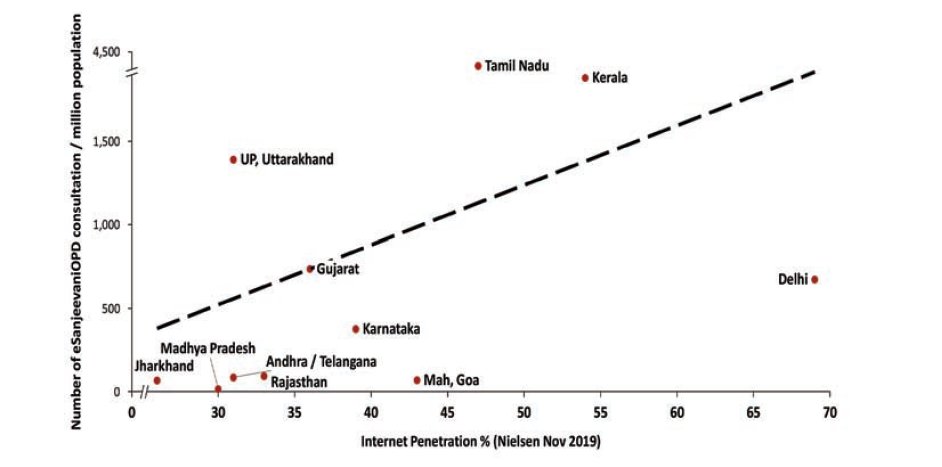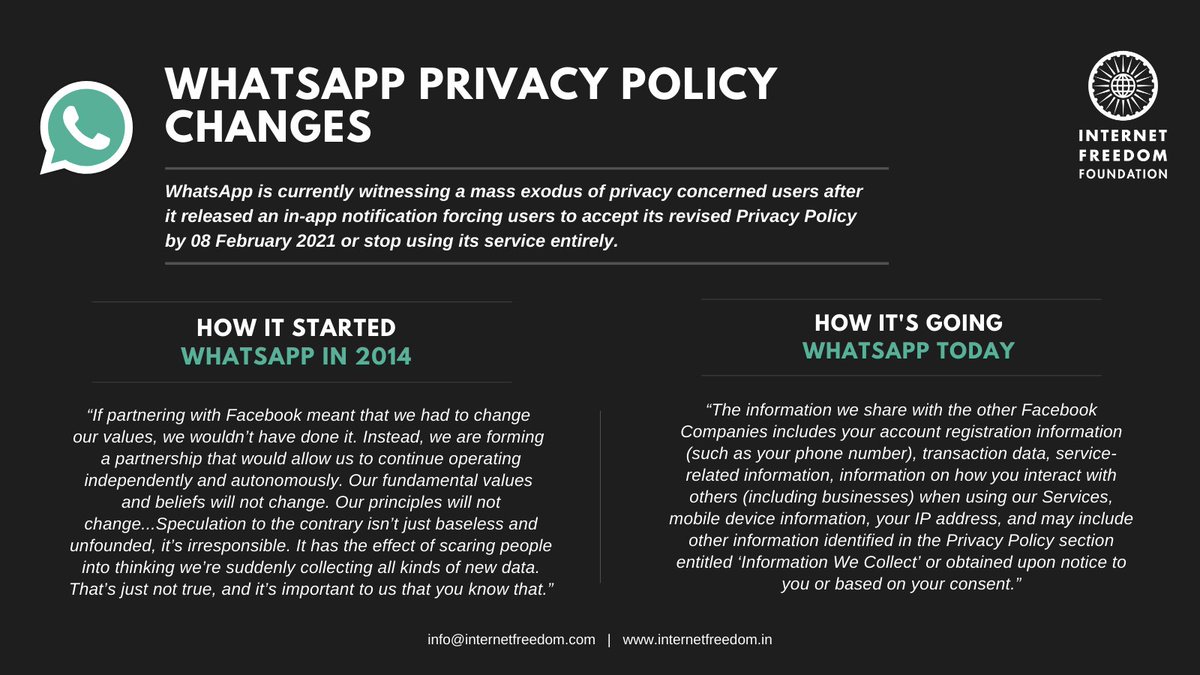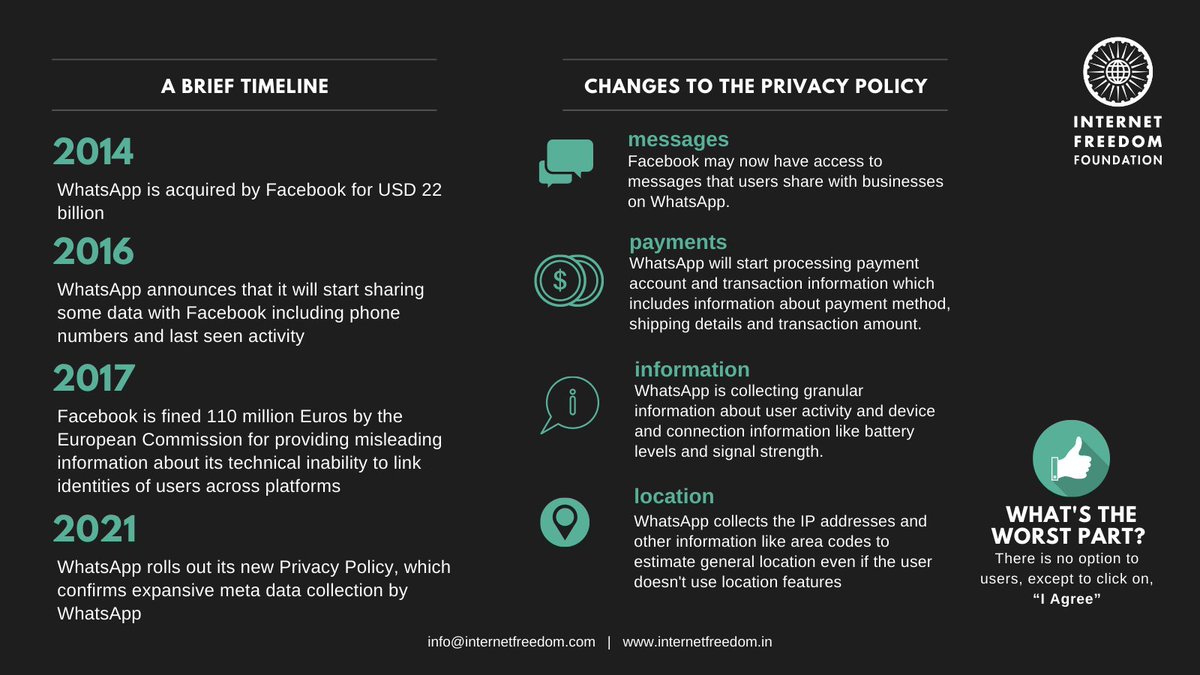
The government has reportedly asked Twitter to remove 1178 Twitter accounts.
The recent blocking of pro farmer protests Twitter accounts reeks of government censorship.
Thread on the timeline of events and what we wrote to the MeitY.
1/n
internetfreedom.in/government-cen…
The recent blocking of pro farmer protests Twitter accounts reeks of government censorship.
Thread on the timeline of events and what we wrote to the MeitY.
1/n
internetfreedom.in/government-cen…
On Feb 1 ~250 Twitter accounts of news orgs, farmers groups, etc. were blocked in response to a legal request from MeitY. The rationale of provocative tweets about protests and a specific hashtag was not substantiated as such direction under Sec 69A has not been made public.
2/n
2/n
Reports claim that Twitter contested the order. While Twitter restored the blocked accounts after public outrage, concerns about secrecy, proportionality and arbitrariness were raised. On Feb 3 MeitY reportedly sent an order to Twitter warning it about this decision.
3/n
3/n
MeitY, pointing to Twitter’s obligations as an intermediary bound by guidelines under Sec 69A of the IT Act, asked Twitter to comply with the earlier order or face criminal proceedings with penal consequences of imprisonment for up to 7 years.
4/n
4/n
A press note providing more details was privately circulated to media outlets. It outlined the rationale behind the order + Centre’s stance on Twitter’s response. Today reports emerged of a new order by MeitY sharing 1178 accounts it wanted removed.
5/n
thehindu.com/news/national/…
5/n
thehindu.com/news/national/…
This is harmful to transparency and India’s democratic ethos. The accounts have pointed out criticisms of the govt in the past. Blocking them is tantamount to censorship (especially when the govt failed to substantiate grounds on which orders for blocking were based).
6/n
6/n
The secrecy and lack of a clear process is concerning if directions are indeed under Sec 69A. From news reports no show cause notice or opportunity to present a defence has been provided to users. Twitter did not even notify most accounts about their access being withheld.
7/n
7/n
Directions have not been made public. This impacts freedom of speech + access to judicial remedies. It's in breach of the SC's directions in Shreya Singhal & Anuradha Bhasin Judgements (right to public info + censorship per principles of transparency & proactive disclosures)
8/n
8/n
We urge the Ministry to recall directions for blocking Twitter accounts, and in the future commence proceedings by providing a fair and clear opportunity to account users to participate and present their defence. Eventual orders under Sec 69A must be made publicly available.
9/n
9/n
• • •
Missing some Tweet in this thread? You can try to
force a refresh











